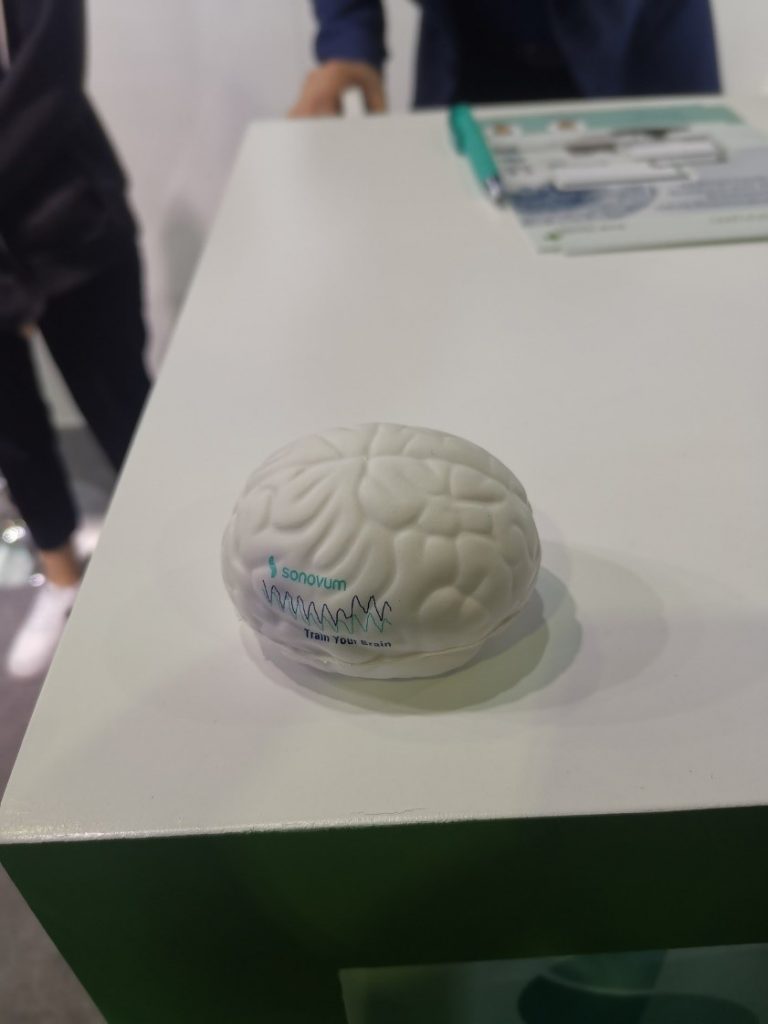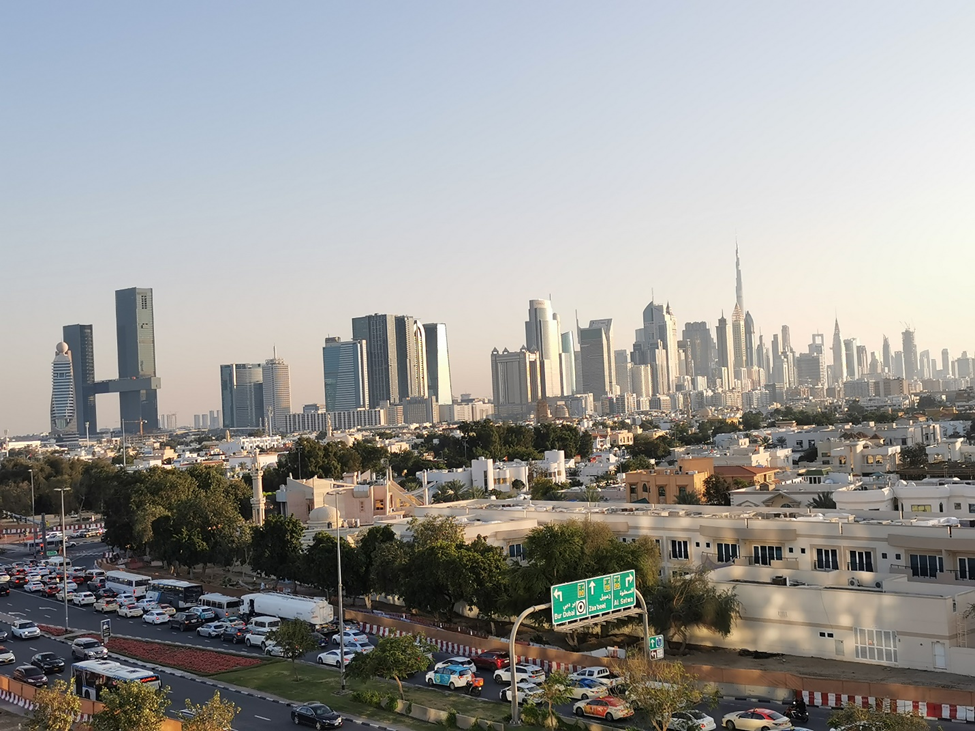Arab Health 2023
Perhaps the Best-ever Arab Health, with Great Exhibitor Lineup, Diversity and Weather
The last time I was at Arab Health, it was January 28, 2020. A fairly sizable Arab Health too. Of course, everyone knew what happened after that. Therefore it was good to be back again, and indeed it was great.
Arab Health was held from January 30 to February 2 at the Dubai World Trade Centre. The meeting is also online for the first time in its history and will continue to run until March 2, 2021.
With participation by around 3,000 companies and more than 80,000 people from 70 countries, it was a truly global celebration of medical care and technology.
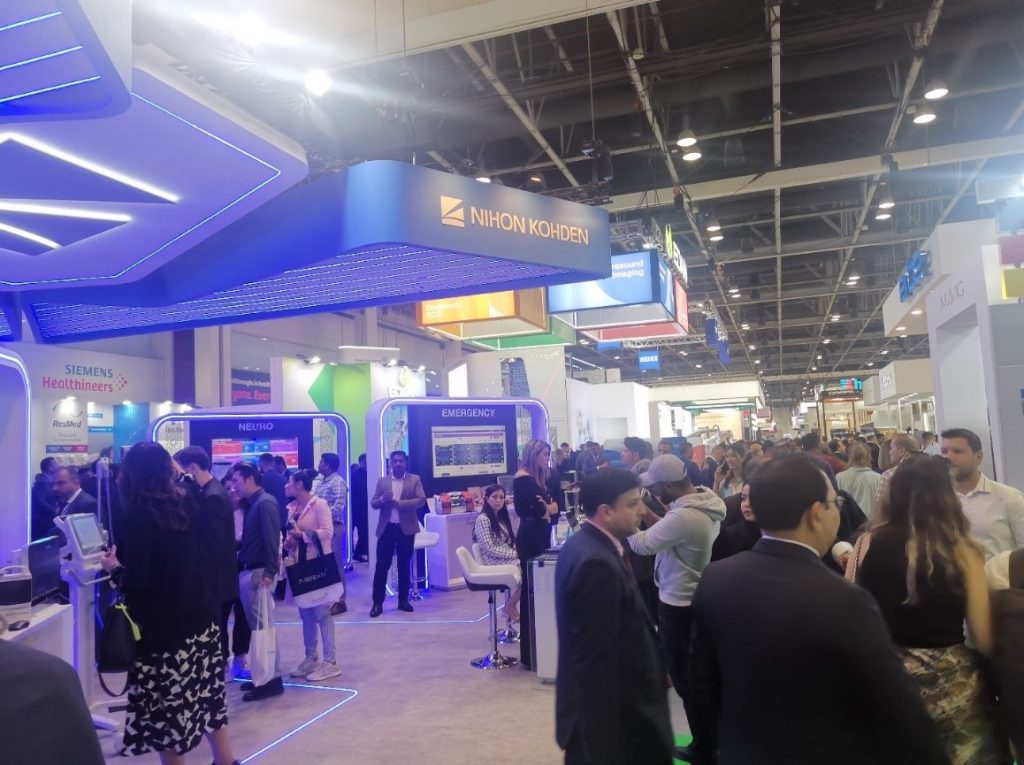

An estimated 60,000 would have gone through these security gates to enter the exhibition halls every day. As the temperature rose, tempers rose too, with people eager to get through but not enough gates. Eventually once inside, we could move freely and navigation between halls was relatively easy.
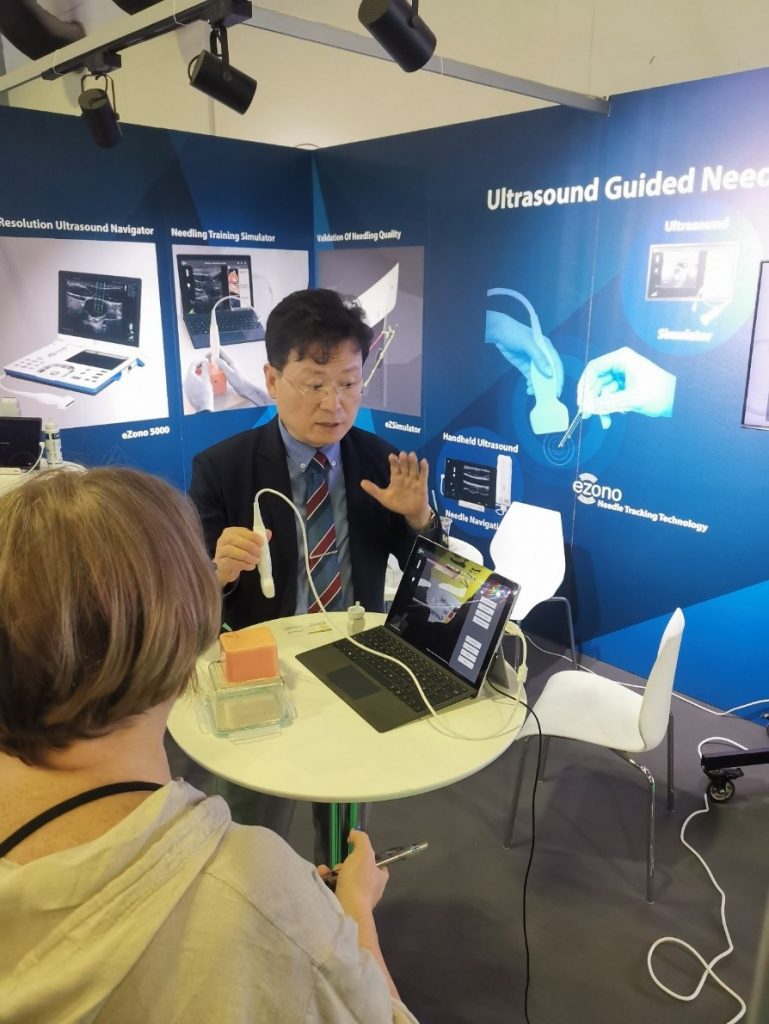
Mr Lee from eZono AG, Germany, demonstrating the ultrasound needling guide software that would transform many needling procedures. His willingness to demo won many hearts as he was so willing to answer every question that was thrown his way too.
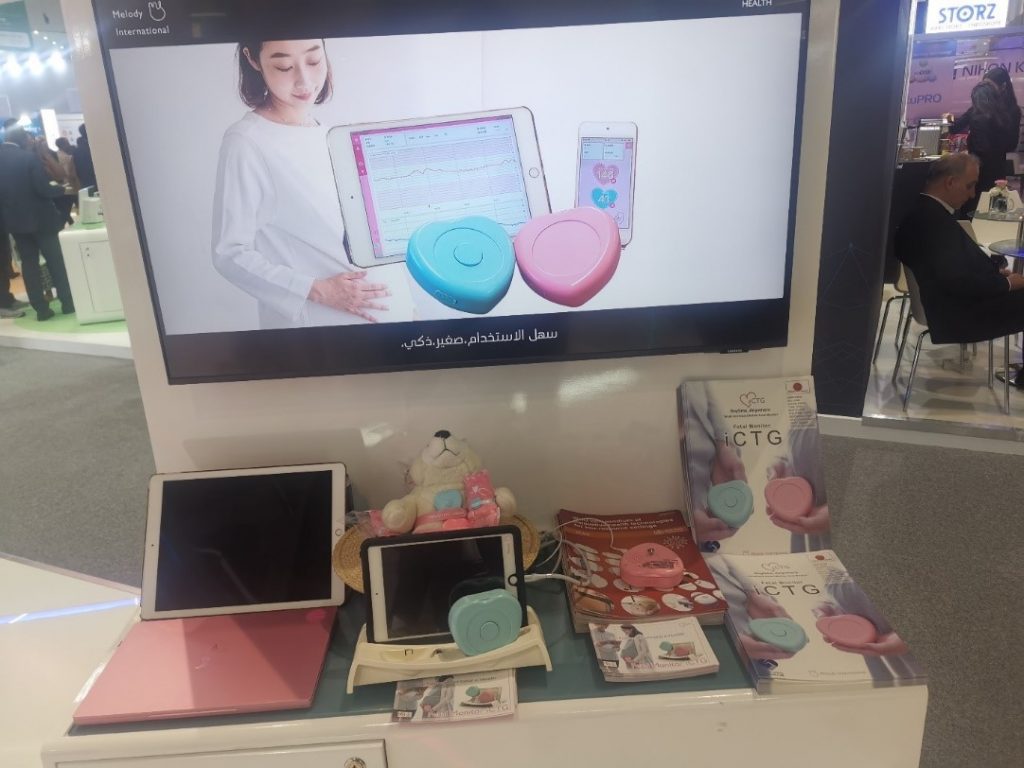
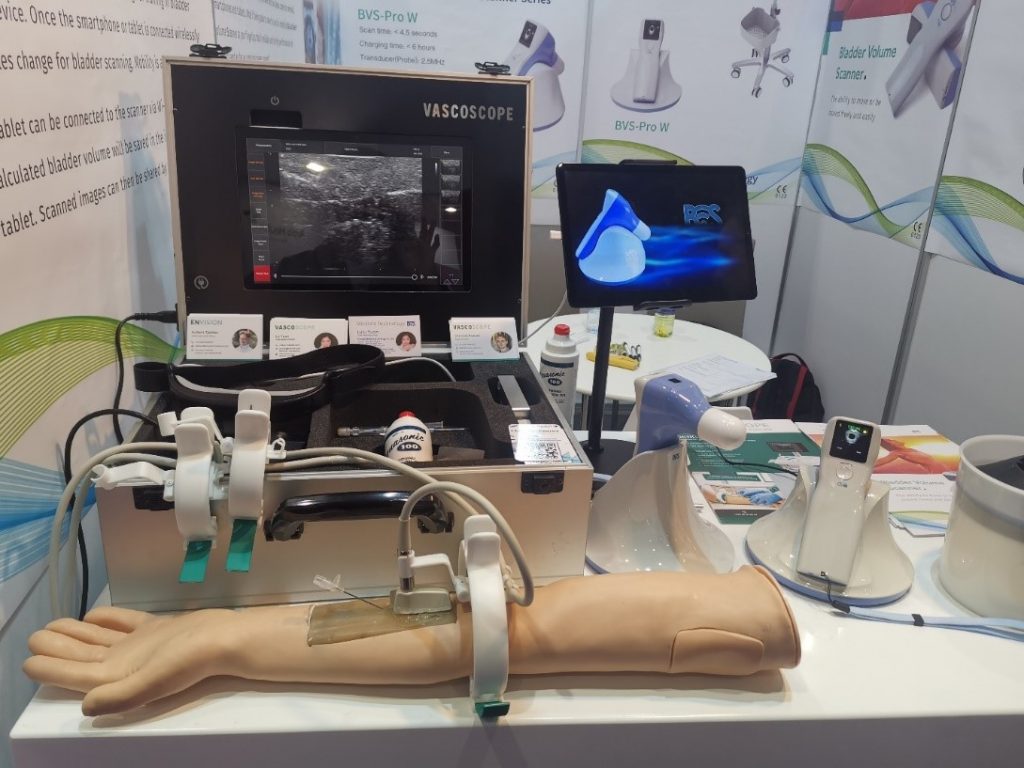
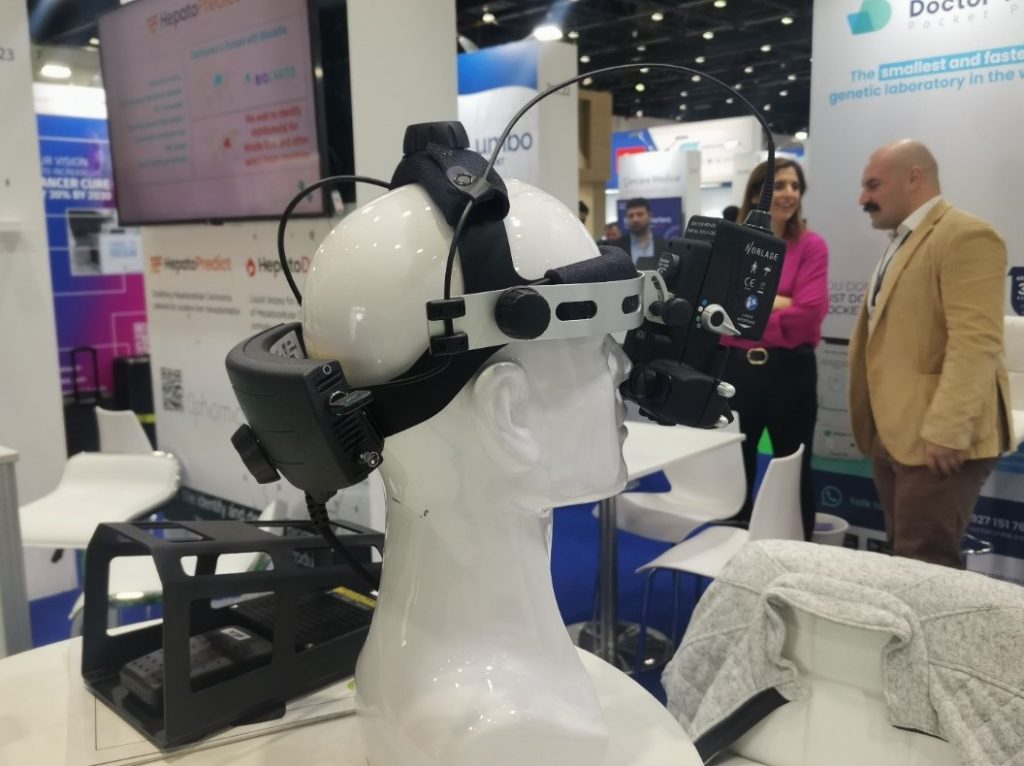
No more fat cables and large consoles! Norlase encapsulates all of an indirect ophthalmoscope, into an easy-to-use headgear form.
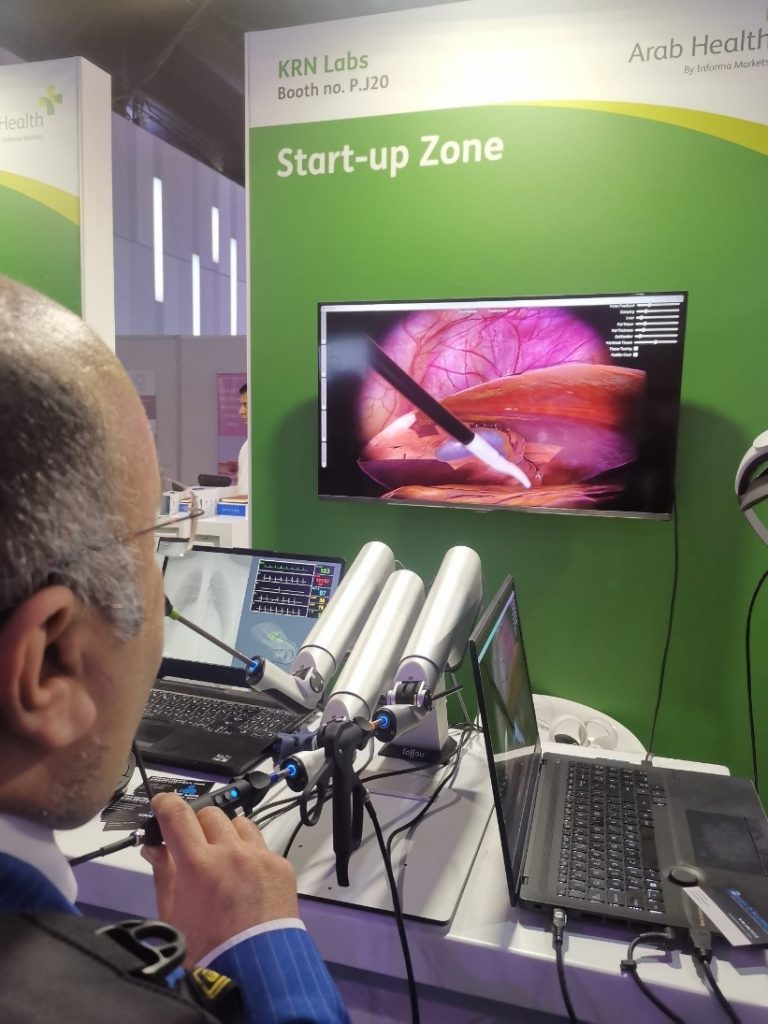
This was really cool – the Augmented Reality Surgical Training at its best – from KRN Labs, Poland was very well presented. It is still in prototyping stage and there were already people asking whether they could collaborate for research purposes.
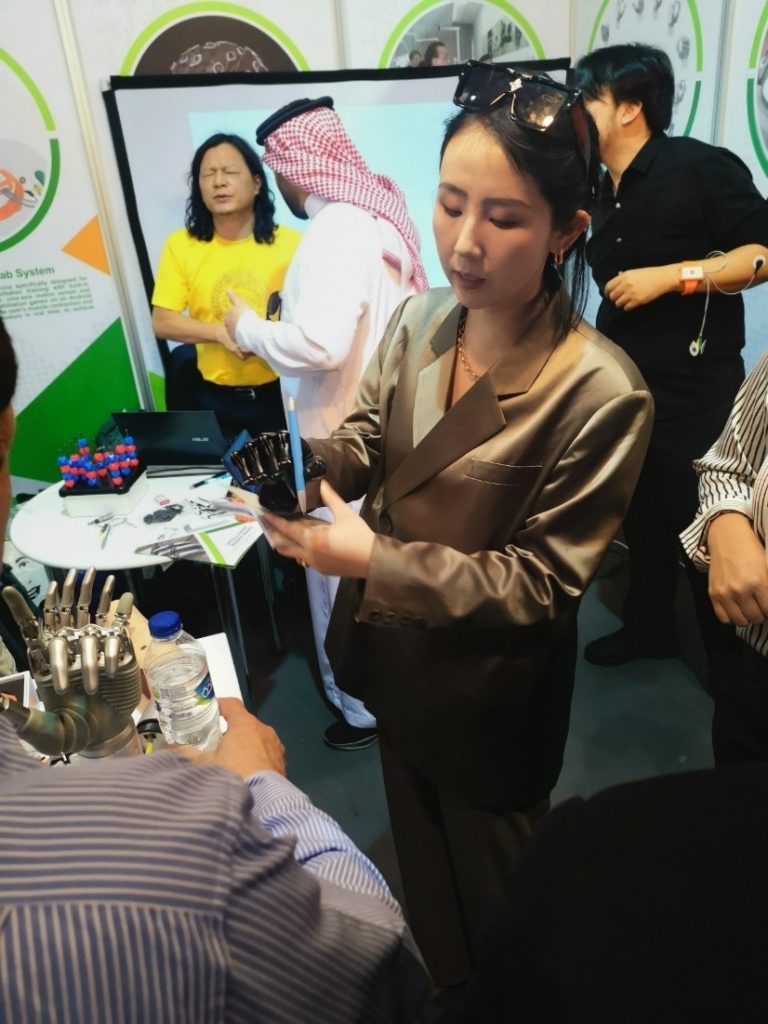
Cyndi with her Robotic arm from OYMotion, showing everyone how she’s holding a pen to write. Cyndi lost her right hand due to a horrific accident some months ago. The robotic arm can’t bear much weight, however, but such technological limitations can be gradually improved.

This is an enlarged model of the foley catheter clip from Cathetrix, Israel. An elegant design to hold the catheter in place. This prevents both patient discomfort and reduces the risk of urinary tract infection as well. There is a mechanism to cut the catheter if it is being pulled excessively.
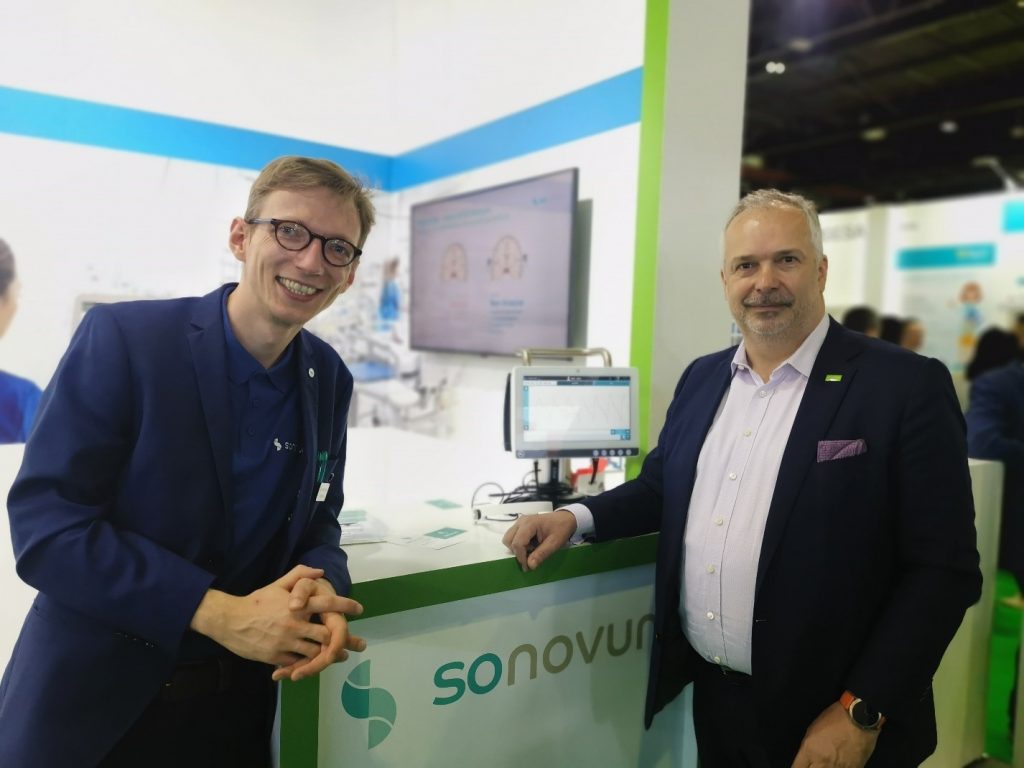
Rolf and Bertrams, from Sonovum, with a nifty device that eliminates the typical procedure of a biopsy for intercranial pressure, and using ultrasound, measures in less than 15 seconds!
It wasn’t all just about looking at technology, finding out opportunities. It was also a great time to connect with ex-colleagues, to connect with the professional life I had left behind. Friendships are not left behind. And old friends re-connect easily.
From the footfall, exhibitor lineup, diversity to weather in Dubai, this was one of the more successful – if not the most successful Arab Health ever. The objectives of reconnecting with business partners and looking at new technologies and business models were certainly achieved.
Perhaps it’s due to the number of participants, and the back-to-back meetings, I feel that exhibitors could spend more time to go around. Not just to look at new technology or to scout out their competitor’s progress, but to sense potential new partnerships between product companies. While the typical business model means everyone’s looking for a distributor, motivated to clock sales, what today’s world could do is to learn how to leverage a complementary device’s strengths to co-market together. For example, eZono AG could easily approach various ultrasound (wired or wireless) to provide that valuable software overlay. The same could be done for CT scanners with ClariPi. Many of the cardiac or remote monitoring patches could have easily worked with digital health platforms, or combined with other monitoring devices to be provided to the end user as a package. Same for the AI software used for annotation and diagnosis.
Many smaller companies with niche devices would benefit from smaller distributors, or even individuals with deep product knowledge and network in the particular medical specialty.
With these various business models, Access-2-Healthcare could come in very handy in terms of providing the market entry, and the local authorized representation, or connecting with various manufacturers within our CRM.
Arab Health, along with Medica at Dusseldorf – is truly a melting pot for new medical technology. As an engineer finding out what’s next for healthcare, I will continue to explore.
